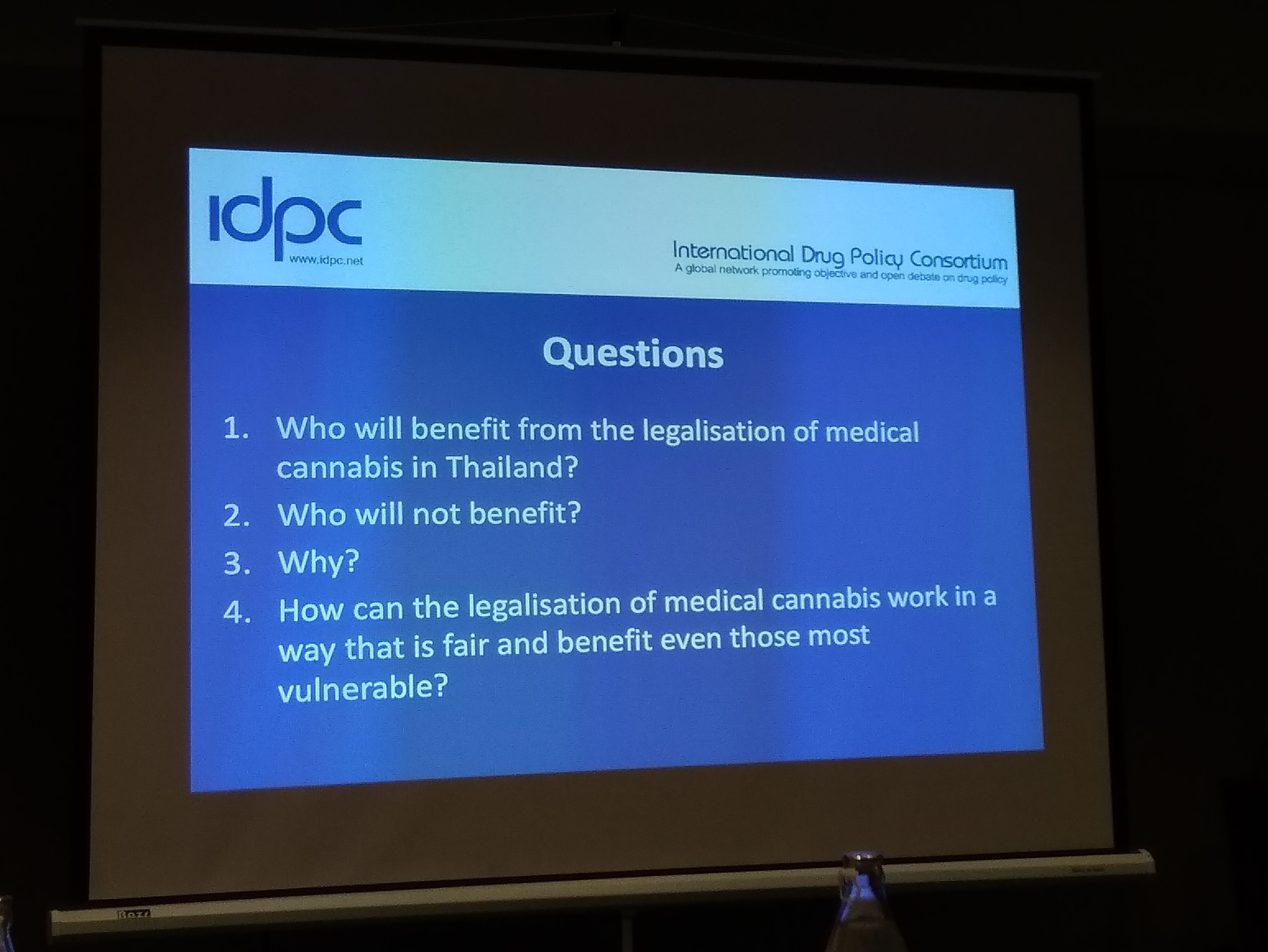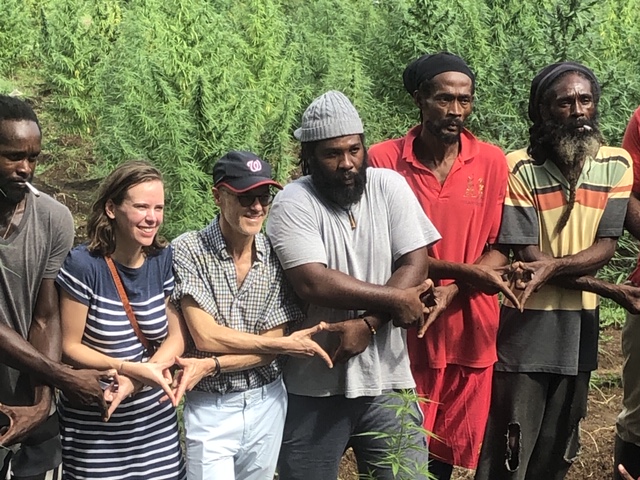|
Dear reader,
The global consensus on punitive drug policies is slowly crumbling. The signs are clear; from the adoption of decriminalisation of drug use and small-scale possession, to various cannabis-related reforms going as far as full-scale legalisation. Though happening at varying paces across countries and regions, the pressure to end the war on drugs is increasing – a trend supported by policymakers and advocates alike.
As governments rethink and redesign policies toward psychoactive drugs, new dilemmas regarding what comes after war on drugs have begun to emerge. From the Americas to Asia, many are raising questions concerning the impact of cannabis legalisation on people and communities whose lives have long been negatively affected by criminalisation and marginalisation borne out of the drug war. Central to this debate has been whether such communities will benefit as much as those with power and money.
|
 In the wake of Thailand’s recent move to legalise medicinal cannabis, Gloria Lai from the International Drug Policy Consortium asks critical questions regarding the country’s regulatory framework
(Presented at the Elevating Cannabis Expo in Bangkok on 18 November 2019) In the wake of Thailand’s recent move to legalise medicinal cannabis, Gloria Lai from the International Drug Policy Consortium asks critical questions regarding the country’s regulatory framework
(Presented at the Elevating Cannabis Expo in Bangkok on 18 November 2019) |
|
|
Serving as another relevant example, the government of Saint Vincent and the Grenadines (SVG) approved a set of bills decriminalising cannabis for medical and scientific purposes, actively involving traditional growers in the new regulation. These changes are part of a wave of reforms happening in the Caribbean region, where changes in cannabis policies have both caused mixed feelings among traditional growers, whose options for legal livelihoods are limited or conditioned by the practise of corporate interests in the emerging cannabis market.
Learn more from our top stories below.
|
| Workshop with cannabis farmers in Saint Vincent and the Grenadines |
|
 Photo credit: Julian Caicedo Photo credit: Julian Caicedo
From 8 to 11 November 2019, the Transnational Institute organised a workshop with cannabis farmers from Saint Vincent and the Grenadines and some of its neighbouring countries. It started off with a public meeting organised with a local farmers organisation Saint Vincent and the Grenadines Cannabis Revival Committee (SVG CRC) and the governmental Medicinal Cannabis Authority (MCA), which was attended by a large group of local farmers. The public meeting was followed by a two-day closed workshop to discuss the future of applying fair(er) trade principles in the region, using the policy recommendations of a CARICOM report as a point of departure, especially with regard to facilitating access and conditions for traditional small-scale growers to take part in the medical cannabis industry. The activities also involved a visit to a cannabis farmers cooperative that has applied for a license to grow for the licit market. Watch this video to learn more about it.
|
|
|
| Social justice focussed panels in St. Louis and Bangkok |
|
|
|
|
|
|
In support of enriching discussions at the International Drug Policy Reform conference in St. Louis, Missouri, Martin Jelsma spoke as part of a panel titled “Sustainability and Inclusion in the Cultivation of Crops for Psychoactive Purposes”, highlighting the importance of involving small-scale and traditional growers of coca, cannabis, and opium. Meanwhile in Thailand, a wide variety of advocates, academics, and businesses attended the Elevating Cannabis Expo 2019, where Dania Putri spoke as part of a panel on cannabis legalisation prospects in Southeast Asia, emphasising the need for broader drug policy reform that is based on human rights and harm reduction principles.
During both events, findings from two of TNI’s most recent reports on fair trade cannabis and medicinal cannabis in Colombia were shared.
|
|
|
|
| The role of civil society in supporting UN system-wide coordination
|
|
|
|
|
|
|
On 12 November 2019, the Transnational Institute co-hosted a side event at the United Nations headquarters in New York, focusing on how civil society could help enhance the quality of UN system-wide coordination through research, data collection, and analysis in drug policy. The side event was organised in collaboration with the Permanent Missions of Mexico and Luxembourg at the UN General Assembly. Martin Jelsma participated in the panel, together with representatives from Argentina, Canada, Czech Republic, and the Netherlands.
|
|
|
|
| Coca and opium growers at the Commission on Narcotic Drugs (CND)
|
|
|
|
|
|
|
Last month, representatives of coca and opium growers from Colombia and Myanmar attended the 4th Intersessional Meeting of the CND and delivered statements highlighting the situation of communities involved in the illicit cultivation of coca and opium in both countries. The growing presence of representatives of such affected communities has led to better understanding that the criminalisation of growers has been both harmful and counterproductive – calling for future policies that concentrate more on sustainable development goals.
|
|
|
|
| |
|
|
|
|
|
|
|
Formed in 1996, the TNI Drugs & Democracy programme explores the underlying causes of drug production and consumption and advocates for evidence-based policies that respect the human rights of producers and consumers. |
|
|
|
| |
|
|
| | | | | | |